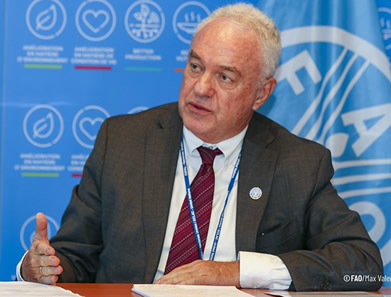7th June, 2023

The current global hunger figures are alarming. More than 828 million people worldwide wake up every day without food, and the outlook for the future is not encouraging. FAO estimates that by 2030, 8% of the world's population will still suffer from hunger, leaving us a long way from achieving target 2 of the United Nations Sustainable Development Goals of zero hunger.
We must achieve strong synergies to overcome this challenge. In an increasingly interconnected world, where food crises have global repercussions, governments, parliaments, and international organizations must work together, sharing information, resources, and strategies to ensure food security for everyone. Other actors, such as civil society, the private sector, and academia, must also be able to add their capacities to this great effort.
In this context, the role of parliamentarians is essential. With their capacities to generate laws, approve public budgets, and oversee the implementation of policies and commitments by governments, parliamentarians are in a privileged position to ensure that food security and nutrition are at the top of national political and legislative agendas.
Between June 14 and 16, Chile will host the II Global Parliamentary Summit against Hunger and the X Forum of the Parliamentary Front against Hunger of Latin America and the Caribbean, with the support of FAO, the Spanish Cooperation Agency, the European Commission, and the Mexican Cooperation Agency.
These events represent a unique opportunity for more than 200 legislators from the region and the world to meet and share their experiences, knowledge, and best practices in the search for effective solutions to eradicate hunger.
The Global Parliamentary Summit will provide an opportunity to discuss and explore the possibility of committing to a global pact that includes regular monitoring and follow-up of the results and achievements in this area.
A similar exercise has been taking place since 2009 in Latin America and the Caribbean through the Parliamentary Front Against Hunger, considered a reference in addressing the current food crisis and that has led to the creation of similar parliamentary groups with a strong impact in Europe and Africa.
With the technical support of FAO, this group of parliamentarians has managed to push forward more than 80 laws aimed at food transformation in the region on issues such as school feeding, family farming, food waste reduction, and losses, among others.
Advancing along this path and continuing to add legislative capabilities will allow us to take steps toward the desired goal of zero hunger.
